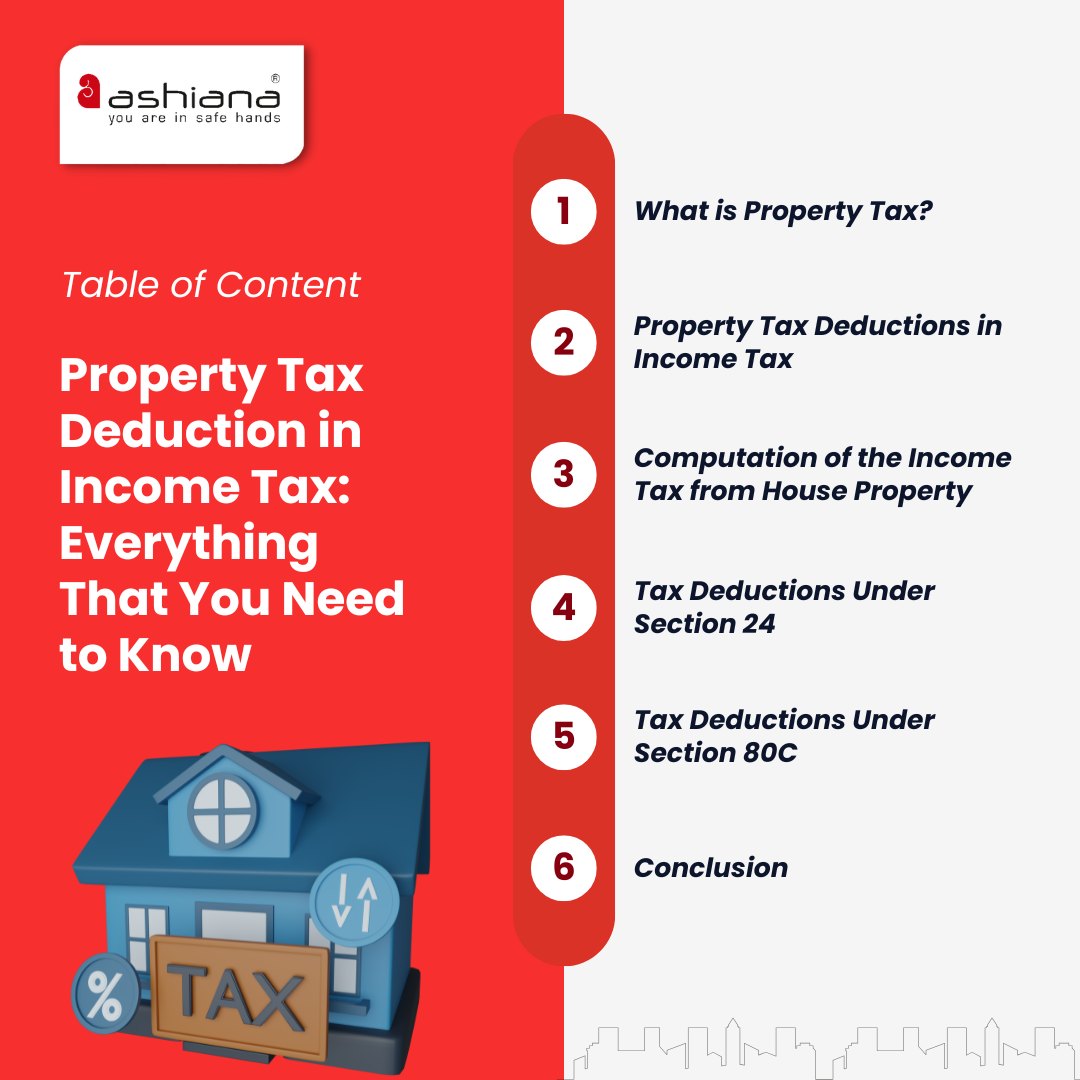

Section 23 of the Indian Income Tax Act, of 1961, deals with calculating the annual value of rental income to calculate total income for income tax. It states that taxes levied by any local authority on the property are allowed to be deducted.
Individuals owning a residential property that generates rental income or is self-occupied are eligible to claim deductions under Section 24. Types of deductions: Standard deduction: A flat 30% deduction is allowed on the gross annual value of the let-out property, regardless of any expenses incurred.
If you can satisfy the conditions of both Section 24 and Section 80EE of the Income Tax Act, immediately claim the benefits. First, exhaust your deductible limit under Section 24, Rs 2 lakh. Then go on to claim the additional benefits under Section 80EE.
Ashiana, Ashiana Housing build homes. Homes surrounded by vast green spaces and fresh breeze. Homes cocooned in secured gated complexes. Homes where futures are forged and there are opportunities to grow. And Homes in environments brimming with healthy activity, trust and respect. At heart, we build communities with care.
Other posts by Ashiana
Join 1000+ of fellow readers. Get expert real estate knowledge straight to your inbox absolutely free. Just enter your email address below.